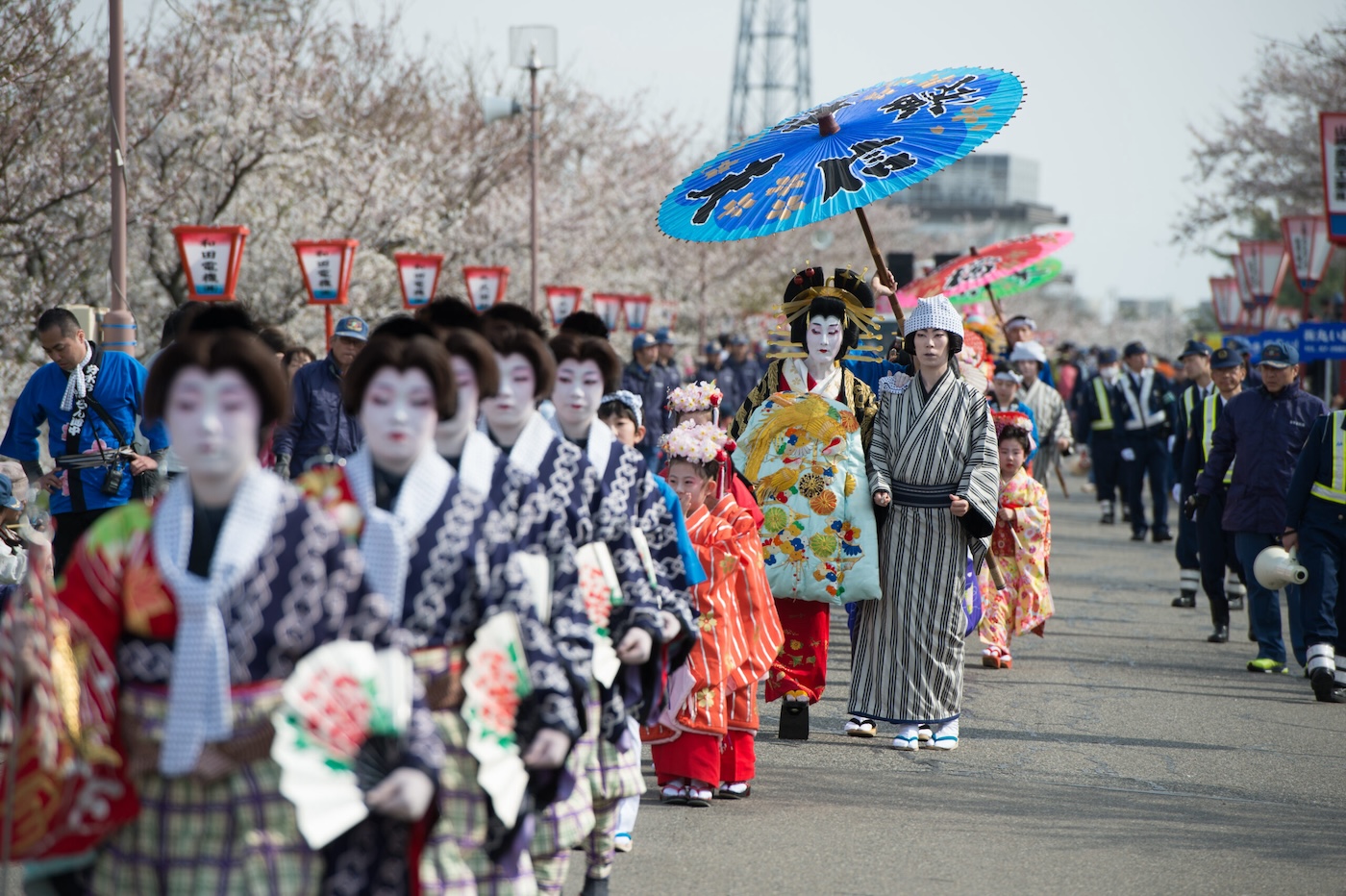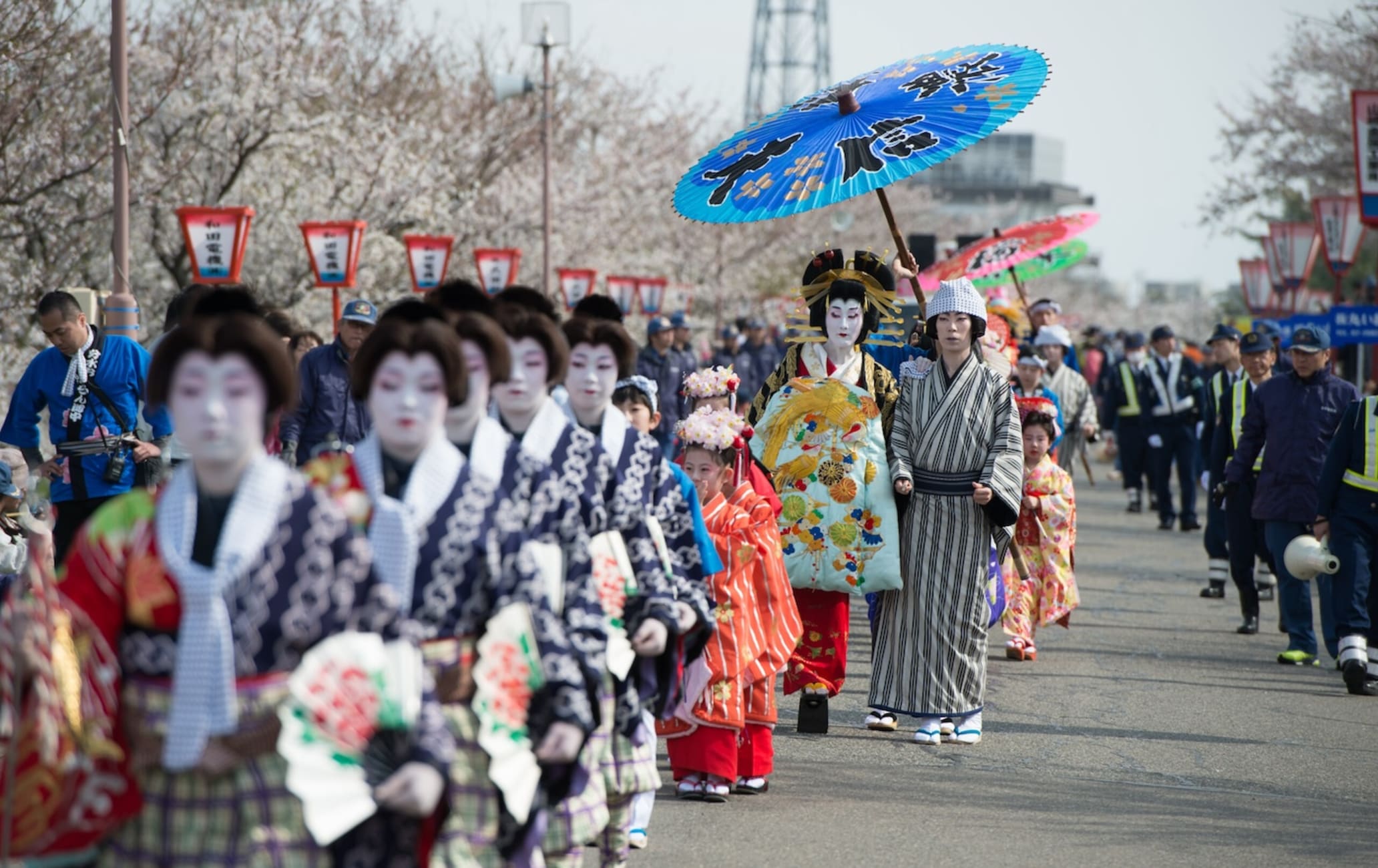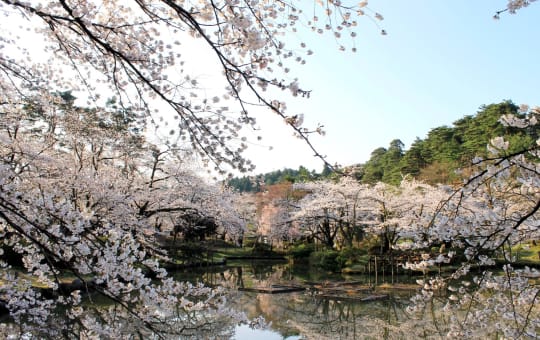Colors explode as a traditional parade joins the blooming of 2,600 cherry blossom trees
The cherry trees along the Okozu Flood-Control Channel originated with the cherry trees that the residents planted on the banks from around 1910, as a prayer for completion of the channel construction, which was a major project in the 20th century. The origin of the Bunsui Kimono Parade (Oiran Dochu) is said to have started as a costume parade by local volunteers for the cherry-blossom viewers around 1924. As visitors increased, the procession became more lively from around 1936. Nowadays, several women in gorgeous kimonos play the roles of Oiran, the main role in the parade, walking with the unique style of pointing their toes outward on three-tooth black wooden sandals that are 15 centimeters high. The other of attendants that follow behind, making the role of Oiran look even more glamorous. The kimono parade under the cherry trees resembles a dream picture scroll.
How to Get There
The Tsubame Cherry Blossom Festival takes place in Tsubame City and can be accessed by public transportation and by car.
By train, take the Joetsu Shinkansen to Niigata Station, then transfer to a local Echigo Line and get off at Bunsui Station. Okozu Banks is a 20-minute walk away.
By car, the Okozu Flood-Control Channel is about 25 minutes away from the Nakanoshima-Mitsuke Interchange or Sanjo-Tsubame Interchange on the Hokuriku Expressway.
Quick Facts
There are roughly 2,600 cherry blossom trees along the Okozu Flood-Control Channel
The Bunsui Kimono Parade (Oiran Dochu) of costumed participants under the cherry trees is like a dream picture scroll
When to see the blossoms
The best season for viewing the cherry blossom trees along the Okozu Flood-Control Channel is from early April to mid-April. The Bunsui Kimono Parade (Oiran Dochu) is held on the third Sunday in April.

























































